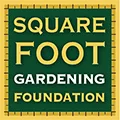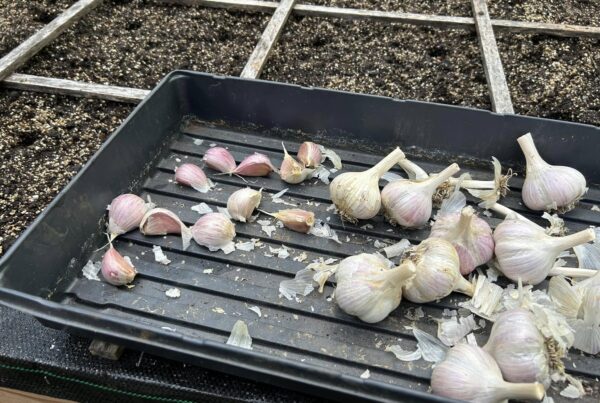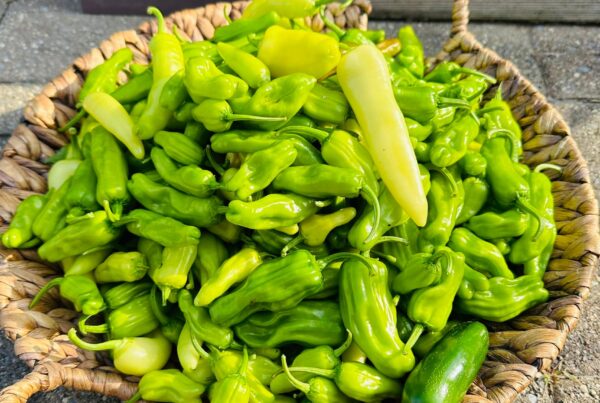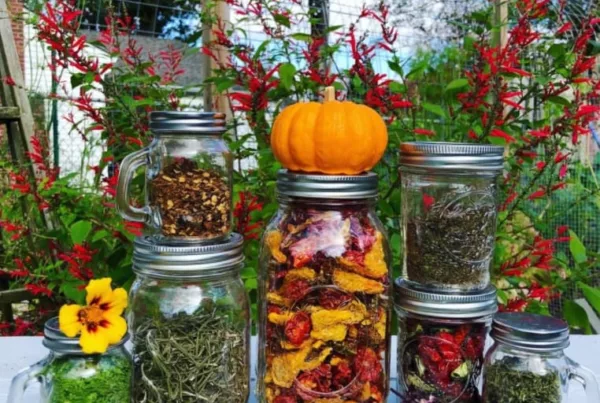Plants grown in a Square Foot Garden are typically healthier from the get-go, mostly because they are given the kind of soil and watering conditions they need to withstand many pests and diseases. But if you’ve been gardening for any length of time, you know that into every garden a few pests and an occasional disease will come, so it’s best to be prepared with organic solutions to control them.
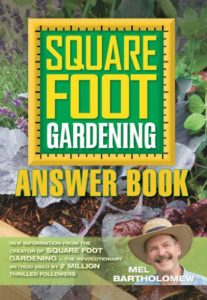 While you can certainly purchase organic spray treatments, one of the things we love best about Square Foot Gardening is its focus on doing things in the most cost-efficient and easy way possible, so why not whip up a few DIY organic pesticide sprays at home? Here are a few of our favorite recipes, but be sure to check out Square Foot Gardening Answer Book for all 7 recipes that control (or even outright get rid of) slugs, aphids, whiteflies, cutworms, and a plethora of other bad garden actors!
While you can certainly purchase organic spray treatments, one of the things we love best about Square Foot Gardening is its focus on doing things in the most cost-efficient and easy way possible, so why not whip up a few DIY organic pesticide sprays at home? Here are a few of our favorite recipes, but be sure to check out Square Foot Gardening Answer Book for all 7 recipes that control (or even outright get rid of) slugs, aphids, whiteflies, cutworms, and a plethora of other bad garden actors!
First Things First
Before we get into the recipes, let’s do a quick reminder of some of the basics when it comes to pest management:
- Always be sure to correctly identify the insect you are seeing in your garden before treating — many insects are good and beneficial, and you don’t want to be treating unnecessarily.
- Even after you’ve ensured that the insect you’re dealing with is a pesky, damaging one, please do continue to use caution when using organic sprays — you want to do your best to only spray where it’s necessary to avoid impacting our beneficial garden visitors like bees and ladybugs.
- Spray on leaves early in the morning or early evening, avoiding the hottest and sunniest afternoon hours when leaf burn can occur.
- Keep all organic pesticide sprays labeled and stored in a dry, dark place away from children.
- Wash your hands after using and avoid contact with the eyes.
- Although the ingredients are organic, they may still cause some irritation to the skin on your hands, so we recommend using gloves when applying the sprays in your garden.
3 DIY Pesticide Spray Recipes
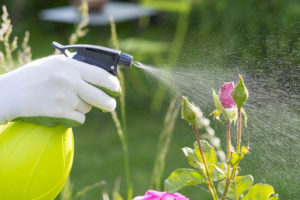 The ingredients for these DIY recipes are easy to find, and in many cases, you likely already have the necessary supplies on hand. The sprays do a great job at controlling damaging insects, but remember to apply them regularly to make sure your pest situation is under control. In many cases, a “one and done” approach is not adequate, so make a promise to yourself (and to your garden!) that you’ll patrol regularly to spot intruders quickly. Luckily, the Square Foot Gardening method encourages a daily connection with your garden to keep issues like these from getting out of hand.
The ingredients for these DIY recipes are easy to find, and in many cases, you likely already have the necessary supplies on hand. The sprays do a great job at controlling damaging insects, but remember to apply them regularly to make sure your pest situation is under control. In many cases, a “one and done” approach is not adequate, so make a promise to yourself (and to your garden!) that you’ll patrol regularly to spot intruders quickly. Luckily, the Square Foot Gardening method encourages a daily connection with your garden to keep issues like these from getting out of hand.
Ingredients/Materials
- Clean spray bottle for each recipe
- Water
- Gloves
- Specific additional ingredients per recipe
- Insecticidal Soap Spray: This is possibly one of the most oft-used garden sprays you can have on hand, particularly if you tend to have aphids in your garden. Put 3 Tablespoons of organic, non-detergent dishwashing soap into a spray bottle with 1 gallon (4 quarts) of water. Spray the infected plant thoroughly, remembering to coat the underside of leaves where pests like to hang out — the bugs are stopped in their tracks, coated with the spray, and ultimately smother.
- Pepper Spray: An effective organic pepper spray is great to repel many damaging insects, but also pulls double duty by keeping wildlife like deer and racoons from treating your garden as their own personal buffet table. Add a quart of water and 2 Tablespoons of cayenne pepper, and bring to a boil for about 10 minutes. Let it cool before adding it to a clean spray bottle for it to work its magic. This nontoxic spray lets the scent do all the work!
- Salt Spray: Poll all your gardener friends and you’ll find that one of the biggest pests in the garden is the dreaded cabbage worm. You might have experienced this in your garden, too, but fortunately there’s a home remedy for this! Mix ½ cup of Epsom salts to one gallon of warm water, and spray on plants impacted with cabbage worms and spider mites. The salt spray does its magic by drying the insects out. Gruesome, but effective!
Notes on Organic Pesticides
Whether you make your own using one of these recipes or you purchase an organic pesticide, there are some general tips on which products/ingredients work for particular pest issues:
- Insecticidal soap works best on soft-bodied insects.
- Bt (Bacillus thuringiensis) is best used when pests are in a worm or larval stage.
- Neem oil is great for a wide variety of pests including aphids, mealybugs, scale, and whiteflies, and can also treat some fungal diseases.
- Products containing spinosad can control pest issues like flea beetles for which neem oil or insecticidal soaps don’t work.
